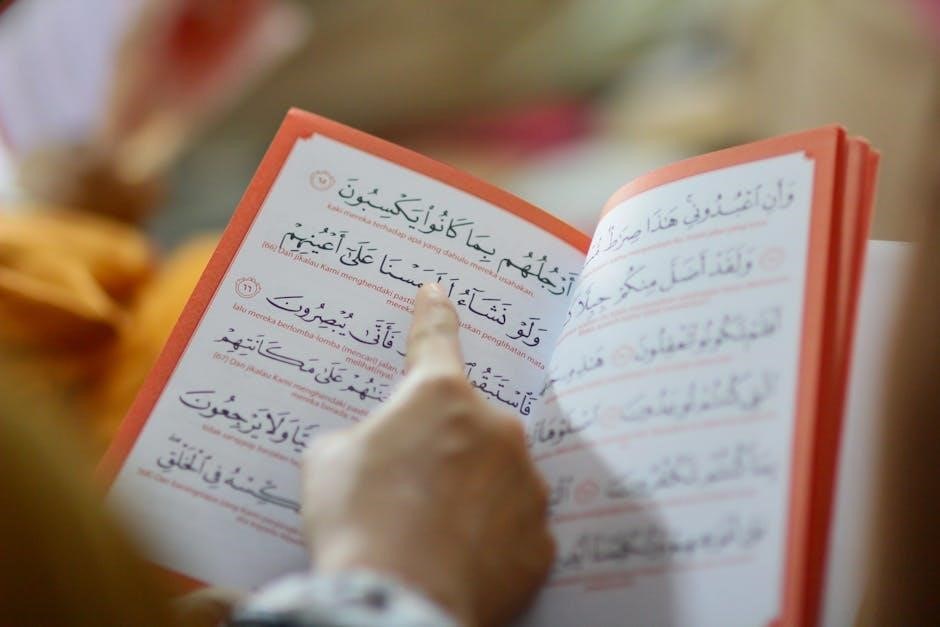Brian Friel’s “Translations” is a poignant drama set in 1833 Donegal, exploring themes of identity, language, and cultural displacement during the Ordnance Survey. This play masterfully captures the tension between Irish traditions and British colonial influence, offering a powerful commentary on the loss of cultural heritage and the enduring impact of language as a tool for both connection and division. First performed in 1980, it remains a cornerstone of Irish theatre, resonating deeply with its exploration of postcolonial realities and the human struggle to preserve identity in the face of change.
1.1 Overview of the Play
“Translations” by Brian Friel is a three-act play set in 1833 Donegal, Ireland, during the Ordnance Survey. It follows the story of a hedge-school community grappling with the British mapping of their land and language. The play centers on the tension between Irish culture and British colonial influence, highlighting themes of identity, language, and cultural displacement. Through its vivid characters and poignant dialogue, “Translations” explores the complexities of communication and the clash of traditions, offering a powerful reflection on Ireland’s history and heritage.
1.2 Historical Context of “Translations”
“Translations” is set in 1833 Donegal, Ireland, during the Ordnance Survey, a British project to map the island. This period marked the imposition of English language and culture, threatening Irish traditions. The play reflects the tensions of colonialism, linguistic suppression, and cultural erosion. First performed in 1980, it resonated with Ireland’s complex history of British rule and the struggle to preserve Gaelic identity, making it a powerful exploration of historical and cultural displacement during a pivotal era.

Key Themes in “Translations”
Brian Friel’s “Translations” delves into themes of identity, cultural conflict, and colonialism, highlighting the tension between Irish traditions and British influence through language and land disputes;
2.1 Identity and Cultural Conflict
In “Translations,” Brian Friel examines the tension between Irish identity and British colonial influence. The play explores how the Ordnance Survey’s mapping of Ireland symbolizes cultural erasure, as Irish place names are Anglicized. This process reflects the broader struggle of maintaining Gaelic traditions in a colonized landscape. Characters like Manus and Sarah embody the internal conflicts of adapting to a changing world while clinging to their cultural roots, highlighting the fragility of identity amidst external forces of transformation and assimilation.
2.2 The Power of Language
Language in Brian Friel’s “Translations” serves as both a bridge and a barrier, reflecting the cultural tensions of 19th-century Ireland. The play highlights how the Ordnance Survey’s Anglicization of Irish place names erodes cultural identity. The tension between Irish and English languages underscores the characters’ struggles with heritage and modernity. This theme is central to Friel’s exploration of colonial impact. PDF resources and analyses further explore how language shapes identity and conflict in the play.
2.3 Colonialism and Its Impact
Brian Friel’s “Translations” delves into the profound effects of colonialism on Irish culture and identity. The play portrays the Ordnance Survey’s Anglicization of Irish place names, symbolizing the erasure of indigenous heritage. This process reflects the broader colonial project, which imposed foreign systems and languages, displacing Gaelic traditions. The tension between British authority and Irish identity underscores the play’s exploration of cultural loss and resilience, highlighting the enduring impact of colonialism on a nation’s history and self-perception.

Characters and Character Development
In “Translations,” colonialism is depicted through the British Ordnance Survey, which Anglicizes Irish place names, symbolizing cultural erasure. This process reflects the broader colonial impact, imposing foreign systems and displacing Gaelic traditions. The play highlights the tension between British authority and Irish identity, illustrating how colonialism disrupts cultural heritage and self-perception, leaving lasting scars on a nation’s history and collective memory.
3.1 Major Characters in the Play
The play revolves around key characters like Manus, a hedge-school teacher, and his father Hugh, who embodies traditional Irish learning. Maire, Manus’s love interest, represents the voice of the community. Jimmy Jack and Sarah, a mute but expressive girl, add depth to the village dynamics. Captain Yolland, a British officer, and Owen, Manus’s brother, symbolize the clash between Irish identity and colonial influence, each grappling with their roles in the changing cultural landscape of 19th-century Ireland.
3.2 The Role of Minor Characters
Minor characters like Jimmy Jack and Sarah play pivotal roles in shaping the narrative. Jimmy Jack’s eccentric storytelling and Sarah’s silent yet expressive presence enrich the community’s fabric. Their interactions highlight the village’s cultural identity and its fragile resilience. These characters, though secondary, underscore the broader themes of language, tradition, and change, offering nuanced perspectives on the collective struggle of a society confronting colonial imposition and cultural erasure. Their contributions deepen the emotional and thematic complexity of the play.

The Role of Language in “Translations”
Language serves as both a bridge and a barrier in “Translations,” highlighting the tension between Irish identity and colonial influence. Friel masterfully portrays how words shape culture, memory, and power, emphasizing the clash between the disappearing Irish tongue and the imposing English language. This linguistic conflict underscores the play’s exploration of cultural erasure and identity loss, revealing language’s dual role as a unifying force and a source of division. Its power to express and suppress defines the characters’ struggles and the broader societal transformation.
4.1 Language as a Tool for Communication
In “Translations,” language is depicted as a vital tool for communication, yet its limitations are starkly evident. The play highlights how words bridge cultural divides, as seen in the interactions between English officials and Irish villagers. However, the inability to fully express emotions or traditions across languages underscores the gaps that language cannot fill. Friel illustrates this through characters like Owen and Yolland, whose efforts to communicate reveal both the unifying and isolating potential of language in a colonized context.
4.2 Language as a Source of Conflict
In “Translations,” language emerges as a source of conflict, particularly through the imposition of English over Irish. The Ordnance Survey’s renaming of local places symbolizes cultural erasure, sparking resistance among the Irish. Characters like Owen face moral dilemmas, torn between translating their heritage and preserving it. The play illustrates how language can divide, as English officials struggle to comprehend Irish traditions, leading to misunderstandings and tension. This linguistic clash underscores the broader colonial conflict, where language becomes both a tool of control and a symbol of lost identity.

The Availability of “Translations” in PDF Format
Brian Friel’s “Translations” is widely available in PDF format through sources like the Boston Public Library, Internet Archive, and educational platforms, ensuring accessibility for study and reading.
5.1 Sources for Downloading the PDF
The PDF of Brian Friel’s “Translations” is available on platforms like the Boston Public Library, Internet Archive, and educational websites. These sources offer free downloads, ensuring easy access for students and researchers. Additionally, study packs and critical analyses in PDF format provide deeper insights into the play’s themes and historical context, making them invaluable resources for academic study.
5.2 Key Features of the PDF Version
The PDF version of “Translations” includes the full play script, study packs, and critical essays. It offers insights into themes like identity and colonialism, with supplementary materials for deeper analysis. The document is digitized and freely accessible, making it ideal for academic use. Features include bibliographical references, summaries, and commentaries, enhancing its value for students and researchers exploring Friel’s work and its historical context.

Performance and Reception History
Brian Friel’s “Translations” premiered in Derry in 1980 amid high security, with helicopters and audience searches. Its Off-Broadway production, directed by Doug Hughes, opened on October 29, receiving critical acclaim for its powerful exploration of language and identity.
6.1 Premiere and Initial Reception
Brian Friel’s “Translations” premiered in Derry’s Guildhall in 1980, with helicopters patrolling above and audience searches, reflecting the play’s politically charged context. The production garnered critical acclaim for its nuanced portrayal of linguistic and cultural clashes, resonating deeply with its exploration of identity and colonialism. The play’s powerful dialogue and emotional depth left a lasting impact, establishing it as a landmark in Irish theatre and sparking widespread intellectual and emotional engagement with its themes.
6;2 Notable Productions and Adaptations
The Off-Broadway production of “Translations” opened in October 2023 as part of the Irish Repertory Theatre’s Friel Project, directed by Tony winner Doug Hughes. Notable adaptations include a 2016 digitization by the Internet Archive, funded by the Kahle/Austin Foundation, making the play accessible globally. The Boston Public Library’s digitized version further highlights its enduring relevance. The play’s setting in Baile Beag/Ballybeg has been adapted in various productions, blending Irish and English influences, ensuring its cultural and historical significance remains vivid and impactful for modern audiences.

Cultural and Historical Significance
Brian Friel’s “Translations” reflects Ireland’s postcolonial experience, challenging colonial narratives and preserving linguistic heritage. Its exploration of cultural identity resonates deeply, making it a landmark in Irish theatre history.
7.1 The Play’s Impact on Irish Theatre
Brian Friel’s “Translations” revolutionized Irish theatre by addressing cultural identity and linguistic heritage. Its 1980 premiere marked a turning point, inspiring a new wave of playwrights to explore Ireland’s complex history through drama. The play’s nuanced portrayal of colonialism and its effects on indigenous culture resonated deeply, solidifying Friel’s reputation as a master storyteller. It remains a cornerstone of Irish theatre, influencing contemporary works and fostering a renewed appreciation for the nation’s linguistic and historical legacy.
7.2 “Translations” as a Postcolonial Work
Brian Friel’s “Translations” is a seminal postcolonial work, critiquing the cultural erasure imposed by colonialism. Set during the 1833 Ordnance Survey, the play illustrates how British authorities sought to anglicize Irish culture, replacing Gaelic place names with English ones. This linguistic shift symbolizes the broader colonial project of cultural suppression. By exploring the tension between Irish identity and British imperialism, Friel’s play underscores the enduring impact of colonialism on indigenous cultures and languages, resonating as a powerful postcolonial statement.
Study Resources and Guides
Study packs and educational materials on “Translations” offer in-depth analyses of themes, characters, and historical context, aiding students in understanding Friel’s exploration of identity and colonialism.
8.1 Study Packs and Educational Materials
Study packs and educational materials for Brian Friel’s “Translations” provide comprehensive analyses, including summaries, commentaries, and critical approaches. These resources, available as PDFs on educational websites and digital archives, offer insights into the play’s themes, characters, and historical context. They include essays on language, identity, and colonialism, enabling students to deepen their understanding of Friel’s work. These materials are invaluable for academic study, helping learners grasp the play’s cultural and historical significance.
8.2 Critical Essays and Analyses
Critical essays and analyses of Brian Friel’s “Translations” are widely available in PDF formats, offering in-depth explorations of the play’s themes, such as language, identity, and colonialism. Scholars like Amal Kitishat and F.C. McGrath provide insightful perspectives, while essays in the Irish University Review and Colby Quarterly delve into the play’s postcolonial significance. These resources are invaluable for students and researchers, providing diverse critical viewpoints that enhance understanding of Friel’s nuanced exploration of cultural and linguistic conflict.
Brian Friel’s “Translations” remains a profound exploration of identity, language, and colonialism, offering timeless insights into Ireland’s cultural journey. Its availability in PDF ensures continued academic and theatrical relevance.
9.1 Summary of Key Points
Brian Friel’s “Translations” delves into themes of identity, language, and colonialism, set against the backdrop of the 1833 Ordnance Survey in Donegal. The play explores the tension between Irish culture and British influence, highlighting the power of language as both a unifying and divisive force. Its historical and postcolonial significance underscores the struggle to preserve cultural identity. Available in PDF, the play remains a vital resource for studying Irish theatre and its profound impact on literary and cultural discourse.
9.2 Final Thoughts on “Translations”
Brian Friel’s “Translations” stands as a masterpiece of Irish theatre, offering a profound exploration of language, identity, and colonialism. Its nuanced portrayal of cultural conflict resonates deeply, while its historical context provides a rich backdrop for reflection. The play’s availability in PDF format ensures its accessibility for study and appreciation, cementing its legacy as a vital work in postcolonial literature and a testament to the enduring power of language to shape and reflect human experience.
